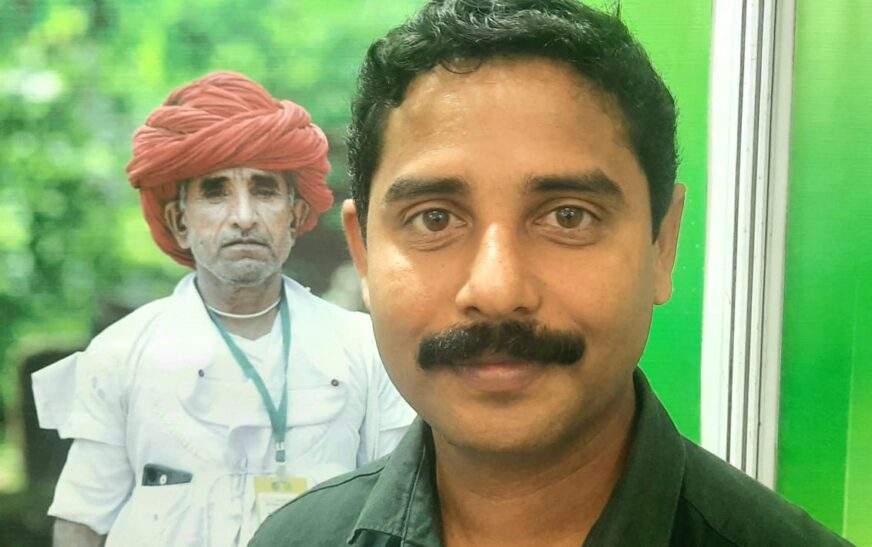The Organic Farming Association of India (OFAI) was established in 2002 by the leading members of India’s organic farming community. Their vision was clear: to champion organic farming, influence government policies towards sustainable agriculture, and aid farmers in transitioning from chemical and pesticide use to organic methods. Over the years, OFAI has remained steadfast in this mission.
Today, OFAI is recognized as the only membership-based national association dedicated to organic farmers, organic farming promoters, and green stores. Its charter ensures that the President of the association is always an organic farmer, reflecting its grassroots commitment. Additionally, the association prioritizes gender equality in all its endeavors and actively campaigns against the introduction of genetically modified organisms (GMOs) and seeds into Indian agriculture.
At BIOFACH INDIA 2024, organized by APEDA, Illiyas KP, President of OFAI, provided an exclusive interview to The Interview World. He also highlighted the organization’s robust efforts to promote organic farming across India. He detailed the significant number of farmers and entrepreneurs aligned with OFAI and emphasized the positive feedback from farmers. Furthermore, he discussed the supportive role of government initiatives in facilitating the transition to organic farming. This support has been crucial in expanding organic agriculture, ensuring sustainable and healthy farming practices for future generations.
Q: Could you elaborate on the role of OFAI and detail the initiatives you are implementing to promote organic farming in India?
A: The Organic Farming Association of India (OFAI) was established in 2002 by leading pioneers in the organic farming movement, including Dr. Claude Alphonso Alvares, G. Nammazhvar, and Dr. Vandana Shiva. These visionaries, along with many others, founded the organization to champion the cause of organic farming. OFAI aims to promote organic farming practices, increase awareness among the farming community, and advocate for supportive government policies. Officially registered in 2006, OFAI has since grown to include a diverse membership comprising farmers, entrepreneurs, and organizations dedicated to advancing organic farming in India. This collective effort continues to drive the organic farming movement forward.
Q: Could you share the current number of farmers associated with your organization?
A: We offer a range of membership options, making it difficult to provide an exact count of our members. However, some notable examples include Timbaktu Collective, which has around 3,000 farmers, and Kerala Jaiva Karshaka Samithi (KJKS), along with the Kerala Organic Farming Community, together boasting over 4,000 farmers. Our memberships span across numerous organizations and individuals alike. Gujarat Organic Farming is another significant member within our network. Overall, we have an extensive reach, with a total membership base ranging from 30,000 to 50,000 farmers, reflecting our broad and diverse community of agricultural partners.
Q: How many entrepreneurs work with the OFAI?
A: Each year, we engage approximately 200 entrepreneurs at our events, highlighting their contributions to the organic sector. Last year’s national convention in Kerala was a notable success, featuring around 400 stalls, including the Seed Festival, and attracting over 200 entrepreneurs. At BIOFACH, where we have participated for the past seven years, 30 to 40 entrepreneurs typically present their innovations. Our primary mission is to advance organic farming through a diverse range of initiatives. These include awareness programs, comprehensive training classes, seed festivals, food festivals, and other events designed to foster knowledge and growth in the organic agriculture community.
Q: How has the transition from modern farming to organic farming been received by the farming community, and what kind of support are you receiving from the government for this shift?
A: Different states exhibit varying levels of response and support for organic farming initiatives. In Kerala, for instance, there is notable community and consumer support for these efforts. This backing is instrumental as we advance our initiatives, particularly in fostering consumer participation through organized farmers’ markets. These markets, held on a weekly or daily basis, attract consumers who are eager to invest their time and money in organic products.
However, despite this enthusiastic consumer engagement, government support in Kerala remains minimal. The central government has made some contributions, notably through the Bharatiya Prakruthi Krishi Padhathi (BPKP) program, which offers technical support and training materials. Yet, this support falls short of addressing critical needs such as processing, branding, packaging, certification, and marketing.
Our current focus is on obtaining comprehensive support for infrastructure development. While we have accumulated substantial knowledge about organic farming practices, soil management, and seed preservation, and are actively sharing this expertise through community programs and seed festivals, there is a pressing need for enhanced support in areas of processing and marketing infrastructure.
The government has not yet fully addressed these requirements, but there is hope that future natural farming initiatives will bring improvements. Awareness of organic farming is on the rise across various states, including Gujarat, Kerala, Tamil Nadu, and Uttar Pradesh. As public interest grows, it becomes increasingly clear that for conventional farmers to successfully transition to organic practices, robust support systems are essential. This support should mirror the infrastructure changes achieved during the Green Revolution, ensuring that all necessary elements—such as processing facilities and marketing channels—are in place to facilitate this important shift in agricultural practices.










2 Comments
Wow superb blog layout How long have you been blogging for you make blogging look easy The overall look of your site is magnificent as well as the content
you are in reality a good webmaster The website loading velocity is amazing It sort of feels that youre doing any distinctive trick Also The contents are masterwork you have done a fantastic job in this topic
Comments are closed.